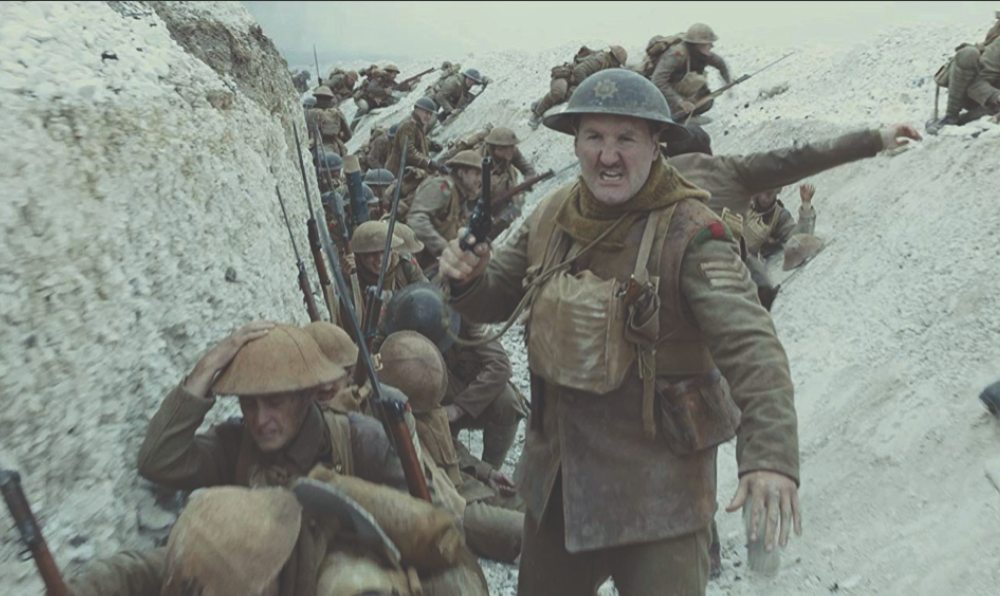
The interview: John Hollingworth
The interview: John Hollingworth
Actor John Hollingworth talks to Lucy Donoughue about hit film 1917, The Crown and tackling tough subjects in The Sugar Syndrome at the Orange Tree Theatre
John Hollingworth played the Queen’s much-loved confidant in The Crown, Captain Henshawe in the hit BBC adaptation of Poldark and Sergeant Guthrie in the newly released First World War epic 1917, but it was the role of Tim in The Sugar Syndrome at The Orange Tree Theatre that inspired him go to unusual lengths to get the part.
“When I heard about this role, I did something that I would never normally do,” John shares. “I followed Oscar Toeman, our fantastic director, on social media and messaged him saying ‘I read the play years ago, I think it’s a brilliant glitteringly dark piece and I’d love it if I could come in and meet you for it’.”
By all accounts, it was a short but intense journey from direct message to casting for John, and one that began at the end of 2019, while he was filming in Berlin.
After connecting with Oscar, John made his way back from Germany, navigating various travel issues, including a plane delay, which saw him sat onboard the aircraft, running his lines in preparation for their meeting. A fellow passenger offered to help by reading in the role of 17-year-old Danni – an offer John accepted with a little trepidation.
The scene they read finds Tim, a man in his thirties, encountering Danni (played by RADA graduate Jessica Rhodes) for the first time. She reveals that she’s not the 11-year-old boy he had agreed to meet after chatting together online, and the conversation that follows sparks a friendship and a slew of honest and unflinching exchanges. Tim speaks about his attraction to young boys, along with his love of literature and former teaching career and Danni shares details of her eating disorder and sexual liaisons organised via internet chat rooms.
Despite initial concerns, John’s impromptu onboard reading kick-started his preparation for the part, and he couldn’t be more grateful. By the time he got to the audition he; “simply felt like it was meant to be”. The role was his and he began to “negotiate the realities of a very vulnerable man, who was trying to do the right thing, but finding that difficult.”
Tim is; “a real challenge of a part”, a factor which, alongside the outstanding writing, was the major draw for John. “I was hungry to do something different. Though in one way, it’s a continuation of parts I’ve played recently; my original storyline in Doc Martin was that I was falling for his wife Louisa and my character, Porchey, in The Crown was deeply in love with the Queen but could never articulate or reference it.
“So, this is a continuation of playing that guy who wants somebody that they can’t have, which is how I’ve approached Tim, and that part of it felt familiar. But then the challenge of taking on the unknown parts of this role was very attractive.”
Lucky is a word that John uses often when talking about this career, although it’s clear from his CV that hard work and tenacity plays a massive part in everything he achieves. He’s incredibly gracious about each job he mentions as we chat, playing opposite Olivia Coleman (who he affectionately refers to as “indecently lovely”) in The Crown was “an absolute treat”, he loved returning to the role of Sam Bradman in Doc Martin, and he’s delighted to have played a part in the First World War Epic 1917. There’s also Jane Goldman’s screenplay of Rebecca, with a cast that includes Keeley Hawes.
But for now, John is deeply entrenched in his current role and the brilliant writing by Lucy Prebble. The Sugar Syndrome was her first play, written back in 2003, and this is its first major revival. John tells me that it’s a confronting and brilliant piece. “It’s been a very intense rehearsal process, but the skill of Lucy’s writing is that every scene is laced with humour, misunderstandings and comic mis-timings.”
John pauses. “That’s one of the things that I’m keen to talk about with this play. It’s easy to fall into discussing the more challenging aspects of it, but its brilliance is that it answers a provocation, which I think every theatre production has to in an era of Netflix and streaming. Why would somebody go to the theatre, what will they get that they can’t by just turning on their TV?
“This production answers that, not only by tackling difficult subject matters, but doing it with humour and also with great humanity.”
The Orange Tree’s in the round auditorium will add to the intensity of the theatrical experience itself. “It’s the perfect space for the play. It’s incredibly intimate, and the audience are in amazingly close proximity. They’ll witness every emotion just inches away from us; laughter, tears, collapsing from within and the struggle to say very difficult things.”
He smiles. “It’s pure theatre, in the best possible way, which is a real pleasure to be on board with.”
24 January — 22 February 2020 www.orangetreetheatre.co.uk
READ OUR FIVE STAR REVIEW OF 1917: www.timeandleisure.co.uk






